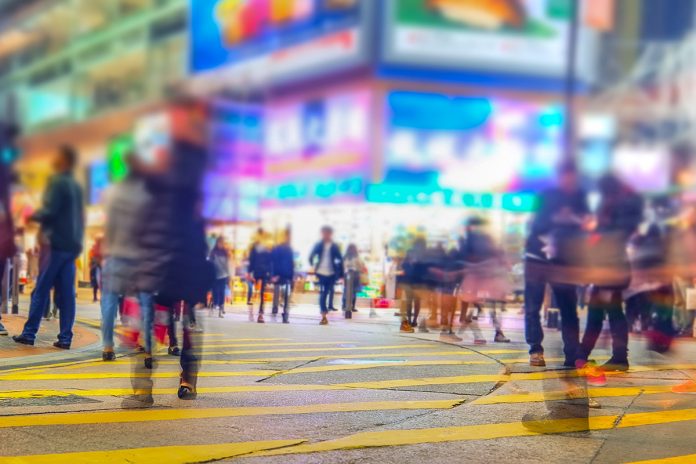Here, Dr Antonio Paolo Russo tells us all about SMARTDEST, a H2020 Research and Innovation project which aims to develop innovative solutions for the problems that arise due to tourism-related mobility
Cities as Mobility Hubs: Tackling Social Exclusion Through ‘Smart’ Citizen Engagement (SMARTDEST) is a H2020 Research and Innovation project, responding to the call TRANSFORMATIONS-03. It started in January 2020 and will run to the end of 2022. It involves 12 universities and research centres in seven EU countries and one associate country, under the leadership of University Rovira i Virgili (Tarragona, Spain).
SMARTDEST tackles arguably one of the greatest challenges for urban areas and metropolitan regions in Europe: that of becoming sites of attraction for ‘temporary’ populations. Cities have been historically the hub of multiple mobilities: human talent and workforce, trade, investments, technology, information and ideas. They thrived on these flows, and have been shaped by them, in their physical, social and cultural landscapes.
Yet, the acceleration and compression of such mobilities, a fundamental trait of our age, is posing an unprecedented threat to urban cohesion. Cities need to ‘make space’ for an ever-increasing number of visitors, short-stayers, expats, and the workers, goods, vehicles, infrastructure that facilitate their arrival and dwelling; and often, this subtracts to the opportunities, affordabilities, quality of life of ‘stable’ resident populations.
Tourism
One such mobilities is tourism. The attraction of tourists and the development of a visitor economy has been one of the fundamental dimensions of contemporary urban development: bringing new opportunities to sizeable sectors of the population, helping cities transitioning from their waning industrial past to the post-industrial service and information economy, and resourcing heritage conservation as well as new projects of urban transformation.
Yet, urban communities all over Europe recently started to feel that ever-growing tourist activity is turning into a hindrance for their way of life and a serious threat for their wellbeing. This is reflected by increased hardships in access to affordable housing, the reorientation of social and commercial spaces towards the consumption practices of temporary dwellers, the increasing casualisation of work, the congestion and conflicts of use of public spaces and services, or the increasing level of atmospheric and noise contamination. All these trends point at emerging avenues of exclusion of resident communities, especially the most vulnerable groups (low-salary workers, women, seniors and people with impaired mobility, cultural and ethnic minorities).
Is this a general trend affecting EU urban areas, which deserves recognition as a key policy concern for the future? Tourism has been mainly the object of sectorial policies in EU policy, whose main objective remains growth. Yet, as recently noted by – among others – the UNWTO, the new Green Deal, which will orient EU policy in the years to come, hardly references or identifies tourism as one of the key dimensions of sustainable development in Europe. It is our strong belief that tourism needs to be recognised as an engine of social change and exclusion in a wide variety of places and scales.
Therefore, a thorough transition to slower, inclusive, more just and ultimately resilient cities, requires new consensus at national and European level on the real dimensions of the challenge that hyper-mobilities, and tourism in particular, are posing to social cohesion.
COVID-19
The temporary blockage of tourism mobilities worldwide caused by COVID-19 has also uncovered another key aspect of the problematic relationship between cities and tourism: the extreme dependence of urban areas from the attraction of large masses of visiting consumers. In this sense, the current crisis presents us with an unprecedented context: societies and cities all over the world have been ‘immobilised’, and there are great concerns whether tourism as we know it will ever go back to normal. Is the ‘slower’ and more regulated world of mobilities we now seem to be heading to, a more inclusive place? Or a more democratic one? These questions offer an intellectual challenge that the conceptual framing and methodological approach of this project allows to meet.
SMARTDEST’s objectives are thus to generate new knowledge about the effects of tourism mobilities on urban inclusion and cohesion, and to explore, design and test the validity of innovative pathways to mitigate social exclusion involving citizens as co-creators. It departs from a broad analysis at European level of mobility drivers, pull factors, and forms of social exclusion. Out of this initial pan-European analysis, the project identifies issues and situations to be scrutinised in greater depth at the local level in eight case study cities (Barcelona, Amsterdam, Venice, Jerusalem, Ljubljana, Turin, Edinburgh and Lisbon).
In the last stage of the research process, social and other stakeholders in each case study city are invited to take part in a participatory process aiming at elaborating solutions in the face of the forms of exclusion identified. The format of these participatory sessions is CityLabs: public fora where issues are discussed and solutions are designed collaboratively, testing their viability with policy and industry leaders in order to ensure that bottom-up, human-centred solutions could produce shared value for the whole destination ecosystem. In the stage of post-COVID recovery, our ambition is to take centre stage in the debate about building more resilient communities in the face of the transformative power of tourism.
The research results of SMARTDEST will be shared with its target publics, namely policy stakeholders, the scientific community and citizens’ networks, in a variety of activities and formats. Our dissemination strategy aims to produce a real impact in terms of informing key policy decisions at all levels, but also to diffuse the project’s format – citizen participation in research and policy design – as a fundamental dimension of urban governance, and to contribute to the consolidation of transnational communities of concern around the topics of the project.
Although currently in its early stages, research results, short insight communications, policy briefs, and other dissemination materials are due to flow soon, using the project website as the main channel. Policy stakeholders and other concern communities can be associated to our project and involved in its dissemination activities, by sending expressions of interest here.
For updates, register at www.shorturl.at/stP15
Disclaimer: The contents of this publication are the sole responsibility of the SMARTDEST consortium and do not necessarily reflect the opinion of the European Union.
Contact:
Project Coordinator: Antonio Paolo Russo, Rovira i Virgili University antonio.russo@urv.cat
This project has received funding from the EU’s programme HORIZON 2020 under the Grant Agreement no. 870753.
Please note: This is a commercial profile











